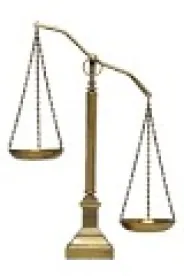The Inspector General Act of 1978 aimed to “consolidate existing auditing and investigative resources to more effectively combat fraud, abuse, waste and mismanagement in the programs and operations of [the executive branch].” To fulfill this mandate, the Act created the Offices of Inspector General (“OIG”) in various executive departments and agencies, including the Department of Defense (“DOD”), and authorized them to conduct and supervise audits and investigations to prevent and detect fraud, waste, and abuse. The DOD OIG’s primary investigative weapon has been the subpoena. More recently, however, the DOD OIG has subtly expanded its investigative arsenal by calling upon the Defense Contract Audit Agency (“DCAA”) to step up its fraud inquiries and by conducting more “Quality Assessments” and “Audits” without sounding the warning shot of the subpoena.
In carrying out its supervisory function, the DOD OIG issued a report this past March on the quality of the DCAA’s fiscal year 2010 audits which recommended that the DCAA engage in discussions with contractor management regarding potential fraud. See http://www.dodig.mil/pubs/documents/DODIG-2013-044.pdf. The DCAA responded by circulating a memorandum for regional directors (“MRD”) in July instructing its field auditors to take a more aggressive investigative posture by asking contractor management whether it has knowledge of or has received allegations relating to fraud affecting the subject matter under review. See http://www.dcaa.mil/mmr/13-PAS-014.pdf. The MRD further instructs field auditors to engage in face-to-face communications with contractor management so they can measure responses and ask follow-up questions, and identify other non-management employees that can corroborate management’s responses or provide additional information.
Contractors have argued that the DCAA does not have the statutory authority to access employees. The DOD OIG and DCAA have responded saying that employees are “records” within the meaning of the Inspector General Act of 1978 and the Federal Acquisition Regulations (“FAR”), and therefore the DCAA may talk to any employees it needs to in order to gain an understanding of the subject matter under review. The DOD OIG and DCAA have also pointed out that the Generally Accepted Government Auditing Standards (“GAGAS”) permit the DCAA to talk to employees when necessary to evaluate contractors’ internal controls and obtain support for the statements they make.
The argument for why the DCAA has the authority to interview contractor employees is somewhat suspect given that the DCAA’s fiscal year 2012 report to Congress proposed that the FAR be expanded to expressly grant the DCAA access to contractor employees. See http://www.dcaa.mil/DCAA_FY2012_Report_to_Congress.pdf. The need for a regulatory change shows that access to contractor employees does not presently exist in the FAR. These caveats aside, the fact remains that DCAA field auditors have been instructed to proactively interview contractor employees about fraud topics (and presumably share what they learn with the DOD OIG) and will continue doing so for the indefinite future.
In addition to prodding the DCAA to step up its investigation of fraud with contractor employees, the DOD OIG has become more stealthy in its own investigations. Rather than issuing subpoenas with all the accompanying bells and whistles as they have traditionally done, the DOD OIG has started to conduct more “Quality Assessments” and “Audits.” The DOD OIG may characterize these Quality Assessments or Audits as routine, informal inquiries (i.e., “this is not a witch hunt”) that are meant to help all involved. While the DOD OIG’s intentions may seem benign or benevolent, contractors should not forget that the primary mission of the DOD OIG is to detect and prevent fraud, waste, and abuse, and it can take the findings obtained during these Quality Assessments and Audits and refer them to federal prosecutors just as it would evidence collected in response to a formal subpoena.
All of this is to say that the DOD OIG, and likely other OIGs, is coming up with new and innovative ways to conduct suspected fraud investigations in a manner that is less alarming to contractors than the traditional subpoena. Contractors should be alert to DCAA requests for interviews or DOD OIG Quality Assessments or Audits, no matter how routine or mundane they may seem. Finally, there are a host of concerns and risks when contractor employees are subject to OIG or DCAA investigative inquiries including employee rights when speaking with Government investigators and adequate protection of contractor attorney-client privileged information and attorney-work product to which the employee may have been exposed.




 />i
/>i
